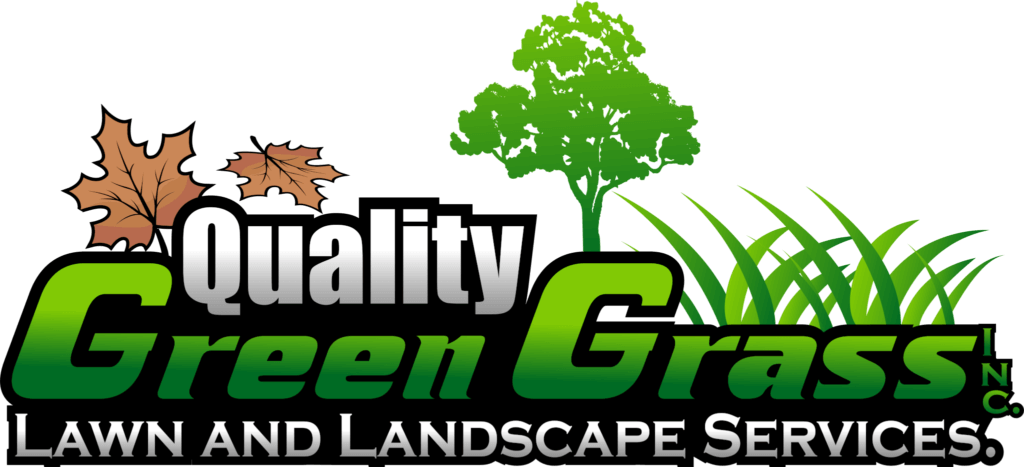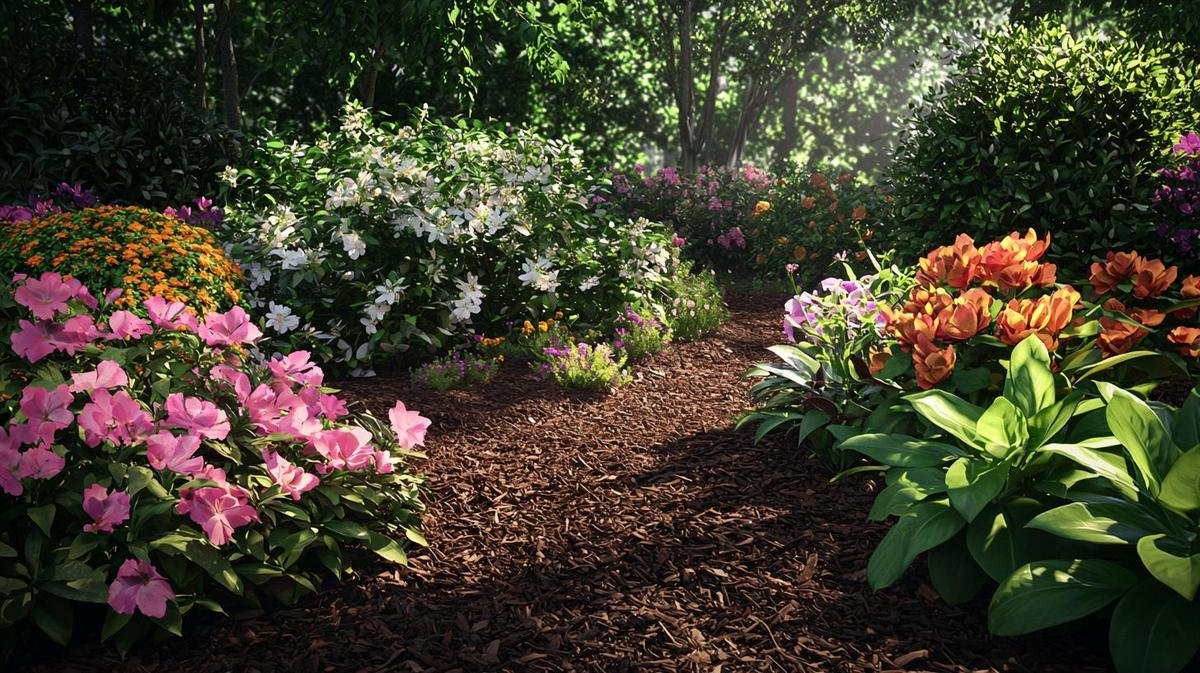-
Best Vegetable Garden Mulch: Compost, straw (moisture retention), leaf mold (holds water), blocks weeds, adds nutrients.
-
Weed Prevention: Mulch blocks sunlight, hindering weed growth; black plastic mulch is effective.
-
Soil Enrichment: Grass clippings add nitrogen, straw maintains moisture and adds organic matter.
-
Tomato Mulching: Straw/pine needles ward off pests; shredded bark and straw keep soil warm/moist.
-
Flower Beds: Shredded bark, wood chips prevent weeds; cedar chips deter pests; pine bark durable.
-
Buying Mulch: Buy in bulk from home improvement stores for discounts/savings; check local nurseries for promotions.
-
Climate-Specific Mulch: Cold climates use straw/pine needles/bark; hot areas use wood chips/straw; compost versatile for mixed climates.
-
Aesthetics and Functionality: Mulch improves garden appearance, regulates soil temperature, adds nutrients, retains moisture, and suppresses weeds.
Choosing the best mulch for your vegetable garden is no easy task! Mulch not only prevents weeds but also enriches and protects your plants. If you're passionate about maintaining a thriving garden, finding the right mulch can make all the difference. Join me as we explore the most effective types of mulch to boost your garden’s health and beauty. Ready to dig in and discover more?
What is the Best Mulch for Vegetable Gardens?
Finding the best mulch for your vegetable garden can transform your growing experience. Each type of mulch serves unique purposes, and some work better for vegetables than others. Let's explore what makes effective mulch for vegetable plots, focusing on options that promote weed prevention in gardens and enrich the soil.
What Types of Mulch Work Best in Vegetable Gardens?
For vegetable gardens, organic mulches like compost, straw, and leaf mold are top choices. Why? These mulches decompose over time, adding nutrients back into the soil. They improve soil health and ensure your vegetables have a steady supply of nutrients. Compost breaks down quickly, keeping soil fertile. Straw keeps moisture in and prevents the growth of weeds. Leaf mold adds texture and holds onto water effectively.
How Does Mulch Prevent Weed Growth in Vegetables?
Mulch acts as a barrier on the garden surface. By blocking sunlight, it stops weeds from getting what they need to grow, reducing their numbers. Black plastic mulch offers this weed-prevention benefit. Though not organic, it's highly effective for blocking weeds and warming the soil in cooler seasons.
Which Organic Mulches Enrich Soil for Vegetables?
Organic mulches like grass clippings and straw enrich the soil significantly. Grass clippings return nitrogen to the soil, crucial for healthy plant growth. Straw, which decomposes slowly, maintains moisture levels, and adds organic matter as it breaks down. Remember to leave some soil bare for pollinators like ground bees.
Mulch selection depends on your garden's unique needs. Consider experimenting to see which mulch keeps your vegetables thriving. Proper mulching can yield a healthy, bountiful harvest.

How is Mulch Beneficial for Tomatoes?
Mulch plays an important role in keeping tomato plants healthy. One of the main reasons I use mulch is for pest control. It forms a barrier that can keep insects away. Certain mulches like straw or pine needles are especially good at this.
Choosing the right mulch can also help your tomatoes grow better. Straw and shredded bark are my top choices. They help keep the soil warm and moist, which tomatoes love. Warm soil gives a steady growing environment, while moisture prevents the stress of dryness.
Layering mulch the right way is key to plant health. Start by spreading a layer around a few inches thick. Aim to cover the entire base, but keep it from touching the stems. This layer stops weeds and helps the soil hold moisture.
Mulch affects more than just plant growth; it impacts bugs in your garden, too. Some bugs don’t like certain types of mulch. Trying different kinds can show you which does best with your tomatoes. It’s a simple step that makes a big difference.
While there are many products you can use, avoiding rubber mulch is important. Southern Living advises against using rubber mulch. It's not good for your plants or overall garden health. Organic choices are safer and more effective.
In summary, the right mulch for tomatoes can transform your garden space. It protects your plants from pests, enhances growth, and maintains plant health. With a little practice, you’ll see which mulch works best for your garden needs.
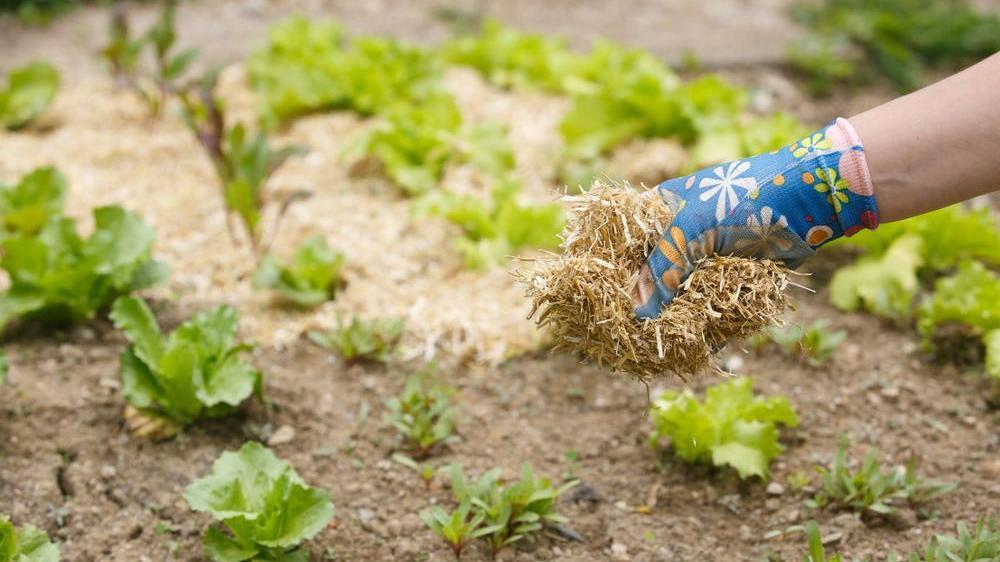
What are the Preferred Mulch Types for Flower Beds?
Mulching flower beds helps keep them healthy and vibrant. But not all mulches work the same way. What are the best mulch types for flower beds? Hardwood mulches, like shredded bark and wood chips, top the list for their weed control. They prevent sunlight from reaching weed seeds, stopping them from growing. Mulching with wood also adds organic matter to the soil, enriching it as the mulch breaks down.
Some mulches look better while also protecting plants. Cedar chips, for example, have a pleasant aroma and keep pests away. Meanwhile, pine bark nuggets offer a clean look. They are durable, lasting longer without frequent replacement. These options balance aesthetics with function, making them suitable for front-yard displays.
How does mulch improve flower bed health? It keeps moisture in the soil by reducing evaporation. This means less watering, a plus in dry months. Mulch also regulates soil temperature, keeping roots cooler in summer and warmer in winter.
Now, what techniques work best for mulching flower beds? Start by clearing weeds from the area. Lay a 2-4 inch layer of mulch over the soil, making sure to keep it away from plant stems. This prevents rot and disease. Applying mulch evenly will help structure your flower bed, giving it a tidy, well-maintained look.
Try to avoid dyed wood chips and rubber mulch. They don't break down well and might leach chemicals into the soil. Use natural options instead to ensure the best for your flower beds' health and beauty.

Where Can You Buy Affordable Mulch?
Finding affordable mulch can seem hard, but it does not have to be. Home improvement stores are a great place to start. Stores like Lowe's and Home Depot offer many mulch types. They often have seasonal discounts which help keep costs down.
What are the Best Places to Purchase Mulch on a Budget? The best places are indeed large home improvement chains. They buy in bulk and pass savings on to customers. Local nurseries might also have good prices. Visit them and ask about sales or promotions.
Are There Benefits to Buying Mulch in Bulk? Yes, bulk buying typically lowers costs. You save money and reduce waste by buying exactly what you need. Bulk mulch is ideal for large areas or community gardens. Consider splitting purchases with neighbors to minimize costs. Bulk buying helps keep mulch fresh and ready to use, as it reduces handling time.
How to Find Promotions and Deals on Mulch? Keep an eye on store circulars and websites for deals. Sign up for email alerts that announce upcoming sales. You can also compare prices online to find the best deals. Some stores might offer loyalty programs or monthly discounts which are worth exploring. During certain seasons, late fall and early spring, for example, you might find clearance prices. Always plan to maximize savings and avoid last-minute purchases.
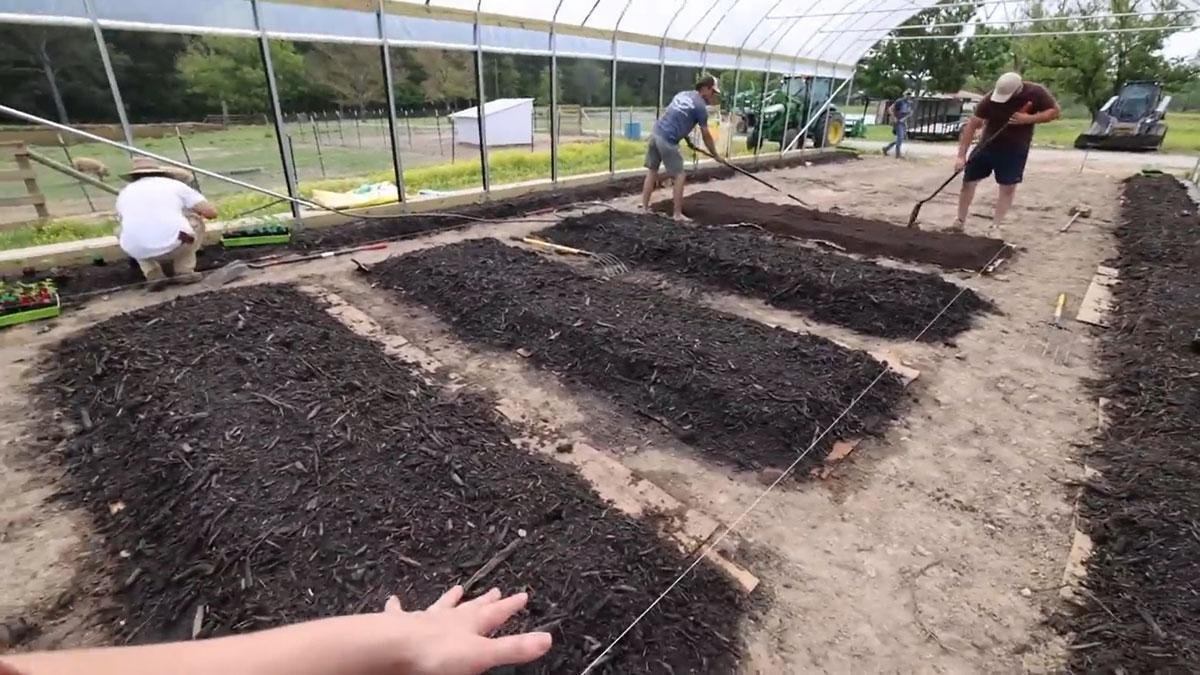
How to Choose Mulch for Different Climate Conditions?
Picking the right mulch is key. Different climates need specific mulches. In cold climates, snow and frost can harm plants. The best mulch can protect them.
What Mulches Work Best in Cold Climates?
Mulches that insulate well are top choices in cold regions. Straw, pine needles, and bark mulch are good. They keep the soil warm and protect plant roots. Bark mulch lasts long and looks nice. Avoid using very fine mulch; it can compact and harm plants.
How Does Mulch Function in Hot, Arid Areas?
In hot and dry areas, mulch can save your garden. It keeps water in the soil. Top mulch choices include wood chips and straw, which reduce evaporation. Use about 3 to 4 inches thick to block sunlight and save water. Light-colored mulch reflects the sun and keeps the ground cooler.
Are There All-Purpose Mulches for Mixed Climates?
Living in a place with mixed weather? You need versatile mulch. Compost is great because it adapts to various conditions. It keeps moisture levels balanced and nourishes plants. Leaves and grass clippings also work well. They adjust as the weather changes and add organic matter to the soil.
Remember to match the mulch with your plant needs and climate. Every type of mulch offers different benefits, so try a few and see what your garden loves best. For more tips, check out this gardening guide.
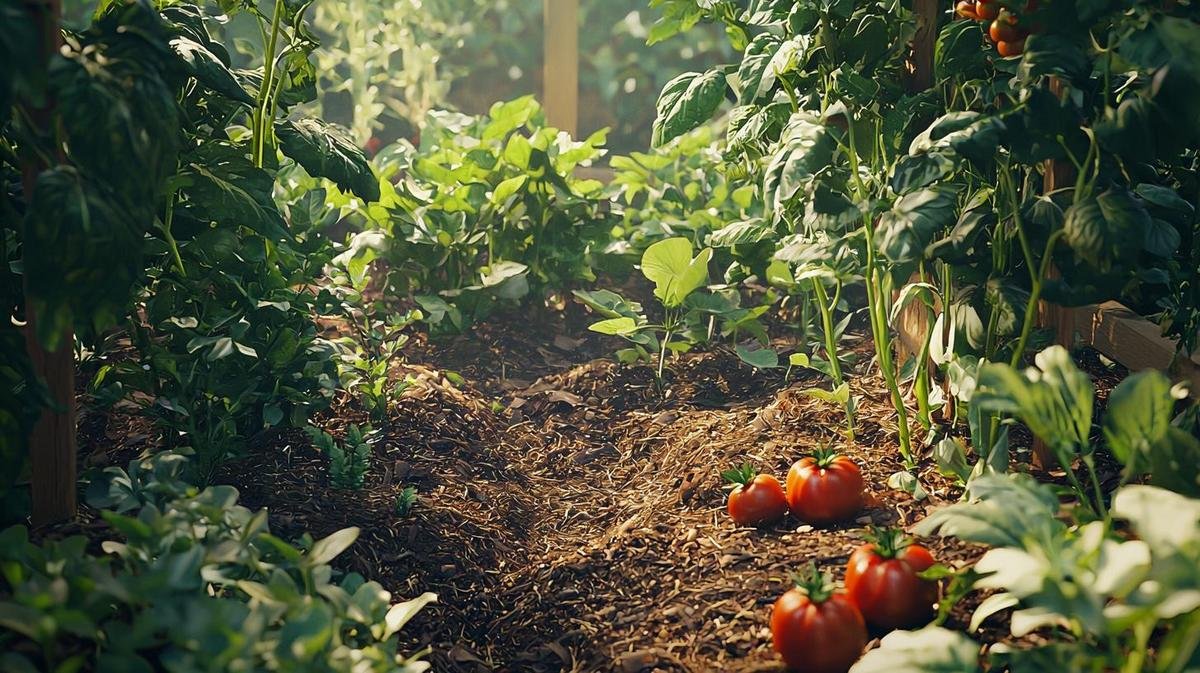
How does Mulch Enhance Garden Aesthetics and Functionality?
How Does Mulch Affect the Visual Appeal of Gardens?
Mulch is like a coat of paint for your garden. It adds color and a tidy look. A well-chosen mulch can make your plants pop against their backdrop. For example, dark-colored mulch highlights bright flowers and green leaves. This contrast can turn a simple garden into a stunning display. It's like framing your favorite photo before hanging it on the wall. Mulch also comes in various textures, from smooth to chunky, letting you personalize your garden's appearance.
In What Ways Does Mulch Help in Temperature Regulation?
Mulch acts like a cozy blanket for your soil. During hot days, it keeps the ground cool by shading it from the sun. This protection helps prevent the roots from drying out. On chilly nights, mulch traps warmth, stopping the soil from getting too cold. With mulch, temperature changes are less harsh, providing a steady environment for your plants. This stability helps your vegetable garden thrive, especially in places with unpredictable weather.
How Does Mulch Promote Overall Plant Health?
Mulch is a healthy snack your plants love. As mulch breaks down, it adds nutrients back to the soil. This process improves the soil's quality, helping plants grow strong. Mulch also holds moisture, so plants get water over time. This prevents them from wilting during dry spells. Plus, mulch suppresses weeds, so your plants don't have to compete for space and resources. It's like giving your garden a personal assistant to keep everything balanced and productive.
Conclusion
To sum up, the right mulch can transform your garden. It stops weeds, enriches soil, and boosts the beauty of vegetable plots, tomato plants, and flower beds. Mulch also repels pests and regulates temperature, making it vital for plant health. Choosing the right type involves considering climate, aesthetics, and affordability. By investing in effective mulching strategies and understanding their benefits, you can elevate your garden's health and appeal while saving time and effort. Pursue sustainable choices to further benefit your lawn and the environment. Mulch wisely for a lush, thriving landscape.
